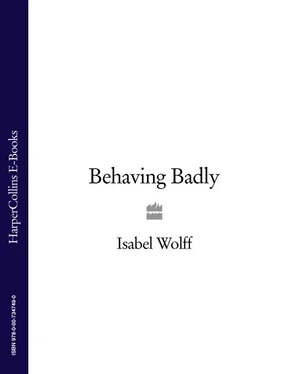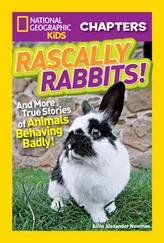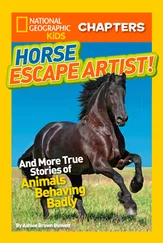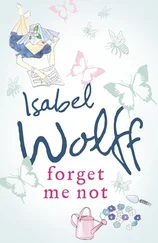‘Then you should call it Perfect Pets.’
‘Okay—I will.’
I hadn’t imagined for a minute, as I’d stood there exclaiming over its suitability and writing down the estate agent’s number, that it would soon also be my home. I’d only recently moved in with Alexander and we were very happy—in fact, so happy that we’d just got engaged. We’d planned to stay in his flat in Archway for the time being, then buy somewhere together, later on. But, just over a month ago, ‘it’ happened, and, overnight, everything changed…
I went back inside, inhaling the citrussy aroma of fresh paint, and continued unpacking. I don’t have much stuff. I’ve no furniture because I’ve never owned my own place; all I have is my clothes, some kitchen things and my books.
From one box I pulled out The Expression of the Emotions in Man and Animals by Charles Darwin, and Lorenz’s On Aggression —a classic text; Readings in Animal Psychology by Justin Lyle, and Why Does My Rabbit…? by Anne McBride. I unpacked all my thirty or so books on animal behaviour, and all my old veterinary textbooks as well; and as I arranged them on the shelves I thought, yet again, how glad I was that I was no longer a vet. I’d always wanted to be one—from about the age of eight onwards—I never considered anything else. I studied veterinary medicine at Bristol, then practised for five years, but disillusionment soon began to set in. I don’t quite know when it started, but it crept into my soul like damp, and I’d realized that living out my childhood dream wasn’t going to be quite as fulfilling as I’d thought. It wasn’t so much the long hours—I was young enough to cope—it was the constant emotional stress.
Of course it was wonderful to make a sick animal well. To see a cat arrive in a bad way, its family in floods, and to be able to put that cat right. But too often it wasn’t like that at all. The way people expected me to produce miracles, the hysterical late-night phone calls—I couldn’t sleep. The way some people—especially the rich ones—would complain about the costs. But worst of all, I couldn’t stand it when I had to put an animal to sleep. Not so much the very old ones, or the terminal cases—my training had prepared me for that. No, it was when people asked me to put down young, healthy animals—that’s what I couldn’t take. That’s how I got Herman.
I was working in East Ham as a locum, and one morning a permatanned-looking woman of about forty came in with this miniature dachshund—a smooth-haired black and tan male, about a year old. It looked worried, but then dachshunds always do look worried—it’s their natural expression—as though there’s just been a stock-market crash. But this particular dachshund looked as though the world was about to end, which, in fact, it was. Because when I lifted it onto the table and asked what the problem seemed to be, the woman said that it had just ‘savaged’ her child and that she wanted it to be put down. I remember looking at her, shocked, and asking what exactly had taken place, and she explained that her five-year-old daughter had been playing with it ‘very nicely’ when it had suddenly given her a ‘nasty nip’ on the hand. When I asked her whether the child had needed stitches, she admitted that she hadn’t, but said that the ‘vicious little bugger’ had ‘drawn blood’.
‘Has he ever done such a thing before?’ I enquired, as the dog stood on the table, radiating—appropriately, as it happened—an air of tragedy.
‘No,’ she conceded. ‘It’s the first time.’
‘And you want me to destroy it?’
‘I do. Otherwise it could happen again, couldn’t it, and it could be worse next time. I mean, you can’t keep a mad dog, can you?’ she sniffed. ‘Not with kids about. And if it isn’t my kid, it could be someone else’s, and then I’ll end up in court.’
‘I do understand your anxiety, but did you see what happened?’
‘Well, no. I mean, not as such. I heard Leah scream, then she comes running into the kitchen, crying her little eyes out, saying the dog had bitten her hand. It just turned on her,’ she added vehemently—‘like that !’—she clicked her taloned fingers by way of demonstration. ‘It’s probably got some bad strain. I never wanted a dog in the first place, but my husband got it off a friend of a friend. He paid four hundred quid for it,’ she muttered bitterly. ‘And they swore that dachshunds are good with kids.’
‘Well, they usually are good with children. They’re very sweet-natured.’
‘Look, I’m not taking no chances, and that’s that. It’s not biting any child of mine and getting away with it,’ she added indignantly.
‘But there are rescue homes, I feel it’s unfair—’
‘But who’d want a dodgy dachshund? My mind’s made up,’ she said, as she snapped open her handbag. ‘You just tell me how much.’ And I was just about to go and consult the Principal Vet because I really didn’t want to do it, when I noticed that the dog was whining quietly and shaking its head. I lifted up its ear flaps and looked inside. Embedded in its left ear was the broken-off end of a child’s knitting needle.
‘ Jesus ,’ I breathed. Holding the dog firmly, I gingerly removed it, then held it up. ‘This is why he bit your daughter.’
The woman stared at it, mutely. ‘Oh. Well…as I say, she was playing with the dog, wasn’t she? She was just playing. She’s only five.’
‘But can you imagine how much that must have hurt?’
‘He still shouldn’t have bitten her though, should he?’
I felt my jaw slacken. ‘What else was he supposed to do? Write her a solicitor’s letter? Ring the RSPCA? He’s a dog. He did what any dog would do.’
‘Yes, but—’
‘There isn’t a but! That’s dog behaviour. If we annoy them enough, they’ll probably bite. What would you do if someone stabbed you in the ear? I imagine you might react!’
‘I want it put down,’ she insisted, jabbing a bejewelled finger at me. ‘It’s my dachshund and I want it put down.’
‘No,’ I said firmly. ‘I won’t. I refuse to murder your dog,’ I added politely. She looked extremely offended at that; and she said in that case she’d take it to another vet’s. But I was one step ahead. I calmly pointed out that there was absolutely no need to ‘try her luck elsewhere’, because I’d be more than happy to keep it myself. She hesitated, then, giving me a look which combined hostility with shame—an unusual mixture—she left. She’d never even told me the dog’s name. So I called him Herman. Herman the German. That was four years ago.
The saddest thing of all was Herman’s distress at her departure—he whimpered inconsolably after she’d left. He might not have felt quite so upset if I’d been able to apprise him of the awful truth.
‘Don’t waste your tears,’ I told him. ‘She didn’t deserve you. You’re going to be a lot better off with me.’ Within a week Herman seemed to think so too, for he seemed grateful for my care and we’d started to bond, and we’ve been pretty inseparable ever since. But it was saving him from a premature end which got me thinking seriously about changing career. I’d already noticed how, in most cases, it isn’t the animal which has the ‘problem’, it’s the humans —and I realized how interesting it could be working with that. A week later I went to a lecture given by a vet who’d retrained as a behaviourist, and I decided that that was what I would do too. I’d still be working with animals, just as I’d always wanted, but without the relentless pressure and stress.
I had no serious financial commitments then, so I used my savings to go back to school. I went to Edinburgh for a year—with Herman—to do an MSc in Animal Behaviour, and I had a fascinating time. We didn’t study only companion animals, although that’s a large part of it, we studied many other species as well. We learned about primate behaviour, about farm animals, and birds, and deer; and there were lectures on marine animals and zoo animals too. I’ll never forget the things we learned. That polar bears are always left-handed, for example, and that chickens prefer pop music to rock. That if you chat pleasantly to a cow it will yield more milk, and that when a cat hisses it’s imitating a snake; that ants practise a form of agriculture, and that ravens are as clever as chimpanzees.
Читать дальше












